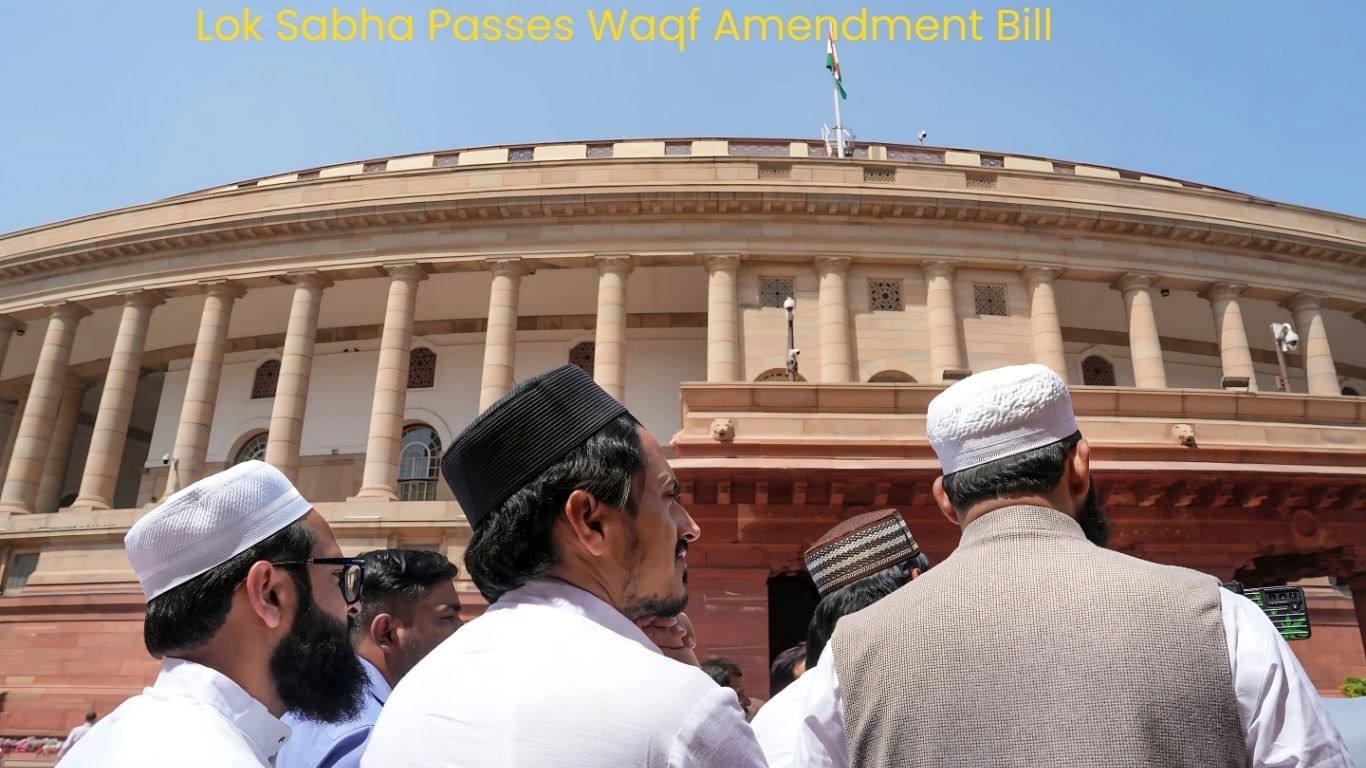Lok Sabha Passes Waqf Amendment Bill In a dramatic late-night sitting, the Lok Sabha approved the Waqf (Amendment) Bill in the wee hours of April 3, after a 12-hour marathon debate. The bill was approved with 288 votes and 232 against and now goes to the Rajya Sabha, where another lengthy discussion is in store, with eight hours for discussion.
The debate in the lower house was angry, with the governing National Democratic Alliance (NDA) government strongly upholding the bill and the opposition savagely criticizing the bill, calling it “anti-Muslim.” All amendments were rejected by voice votes despite opposition members’ objections and suggested changes.
Read also: Uttar Pradesh UP GNM Entrance Test UPGET 2025: Admissions
Table of Contents
What Does the Waqf Amendment Bill Seek to Do?
Lok Sabha Passes Waqf Amendment Bill intends to modify the Waqf Act of 1995 in order to improve the administration and management of Waqf properties throughout India. It intends to make processes easier, enhance the efficiency of Waqf boards, and bring in technological developments to manage records more effectively. The government has said that the modifications will help improve transparency issues, mismanagement, and unauthorized occupation of Waqf properties.
The new bill takes into account suggestions from the Joint Parliamentary Committee, which had studied the previous draft presented in August last year. In addition to this, the Mussalman Waqf (Repeal) Bill, 2024, was also approved in the Lok Sabha.
Read also: iOS 18.4 Features and Updates: New AI Features, Photos App
Government’s Defense: A Step for Better Governance
Union Minority Affairs Minister Kiren Rijiju spearheaded the government’s defense, rebuffing opposition charges that the bill was unconstitutional or aimed at a specific community.
“Leaders are saying the bill is unconstitutional, but if it was, why didn’t the courts reject it? We need to be cautious with our words. This bill is about administration and governance, not discrimination,” Rijiju said.
He continued to point out that India continues to be one of the safest countries in the world for minorities. “They are safe here because the majority is completely secular,” he said.
Rijiju also targeted opposition parties, accusing them of deceiving people regarding the purpose of the bill. In his view, after the bill comes into effect, the benefactors will be mostly the poor sections of the Muslim community.
Read also: Vitamin B12 Deficiency: Symptoms, Causes & Best to Overcome
“Crores of poor Muslims will thank Prime Minister Narendra Modi for passing this bill,” Rijiju asserted, reaffirming the government’s argument that the amendment is to be done for the betterment of the community and not against it.
Opposition’s Counter: A Threat to Religious Rights?
The opposition, of course, had a vastly different viewpoint on the issue. A number of MPs expressed vehement objections, contending that the bill weakens the autonomy of Waqf boards and grants excessive authority to the government. Some opposition members went so far as to charge that the government was systematically targeting minority institutions under the guise of administrative reform.
One of the key issues brought up was that the amendments would result in a decrease in community control over Waqf properties.
“This bill is not reform; it’s about control. The government is interfering in religious bodies in the name of efficiency,” an opposition MP stated in the debate.
Read also: Bihar SSC Sub Statistical Officer Recruitment 2025
The Road Ahead in Rajya Sabha
Lok Sabha Passes Waqf Amendment Bill With the bill now moving to the Rajya Sabha, a new series of heated debates is on the cards. The government is sure that it will go through, but the opposition has made it clear that they will continue their protest. Since the bill is controversial, it will be interesting to see whether additional changes are proposed or if it is passed as it stands now.
The larger question is: Will these amendments really assist in more effective governance of Waqf properties, or will they become an instrument of increased state control? As the debate rages on, everyone’s eyes will be on the Rajya Sabha for the next installment of this legislative battle.
Final Thoughts
Legislation concerning religious institutions always evokes strong passions, and the Waqf (Amendment) Bill is no different. While the government tries to sell it as a move towards improved governance, the opposition perceives it as an infringement on minority rights. The actual effect of this bill will be known only after it is implemented. Till then, political debate surrounding it is sure to be hot.






